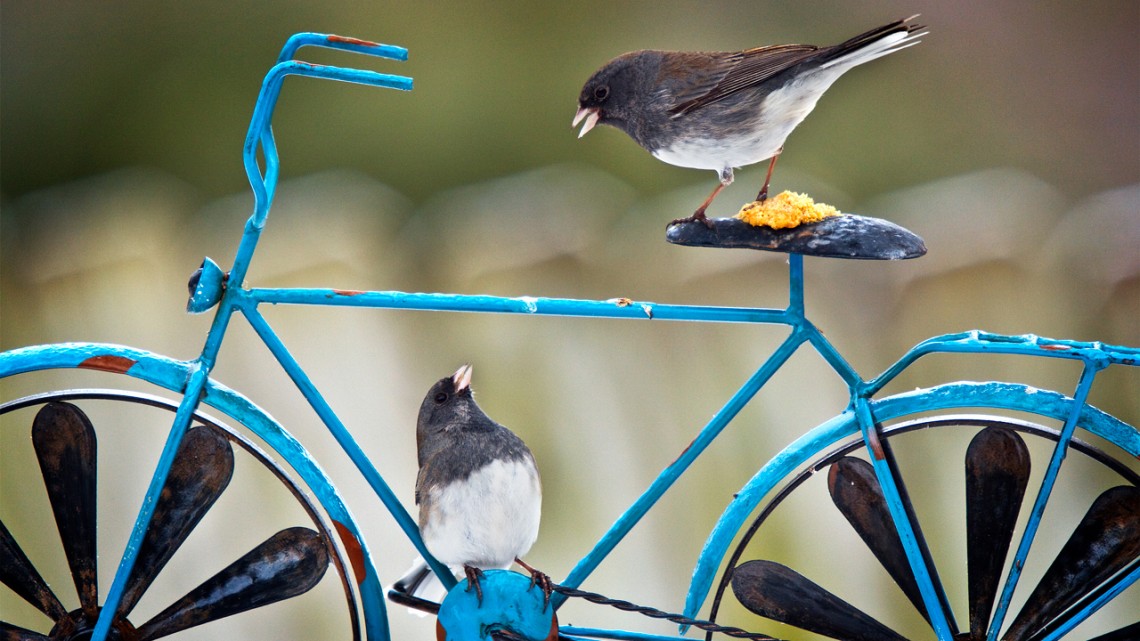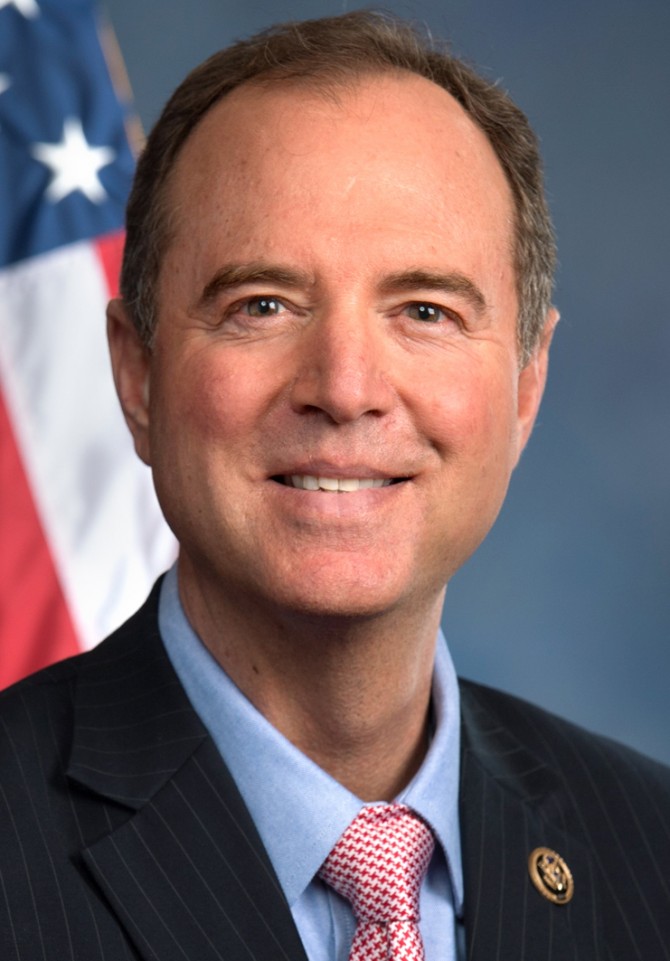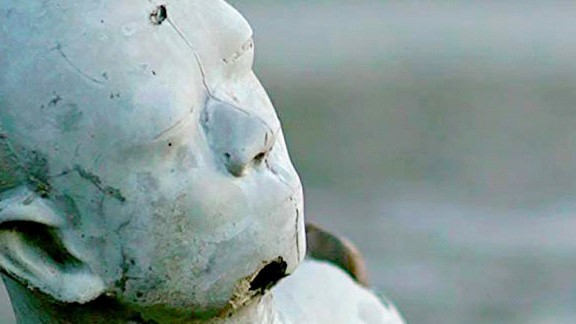
The Lab of Ornithology presents a lecture Oct. 7 on studies of the dark-eyed junco, commonly known as the snowbird.
Things to Do, Oct. 4-11, 2019
By Daniel Aloi
Bioengineer to visit
A.D. White Professor-at-Large Stephen Quake, a leading scientist in the fields of biomedical engineering and genomic medicine, visits campus Oct. 7-11.
He will lead a seminar, “Academic Entrepreneurship: Creating Impact Beyond Publishing Papers,” Oct. 7 at 3:30 p.m. in Statler Hall’s Alice Statler Auditorium. A panel discussion follows, with David Putnam, professor of biomedical engineering; Andrea Katherine Ippolito, lecturer in civil and environmental engineering; and moderator David Erickson, professor of mechanical engineering and director of the Sibley School of Mechanical and Aerospace Engineering.
The event is open to the public; with a reception at 5 p.m. in the Statler Hotel.
Quake, a professor of bioengineering at Stanford University and co-president of the Chan Zuckerberg Biohub, will give the keynote lecture at the second annual Intercampus Cancer Symposium, Oct. 11 at the College of Veterinary Medicine. He also meets with faculty and students and visits classes next week.
Learning from snowbirds
The junco, a bird found throughout North America, provides important insights on seasonal migration, evolution and threats to biodiversity. Biologist Ellen Ketterson of Indiana University will discuss juncos in a lecture, “Journey of the Juncos: Migration of a Familiar Backyard Bird,” Oct. 7 at 5:30 p.m. in B25 Warren Hall.
Presented by the Cornell Lab of Ornithology, the lecture is free and open to the public. It will be streamed live on CornellCast and at the Lab’s Bird Academy site.
Ketterson has studied the science of migration and the dark-eyed junco, a model bird species commonly known as the snowbird, for decades. She will discuss the consequences of environmental change affecting migratory animal populations, forcing them to move to new places, modify how they behave or face extinction, and how studying this bird can help us predict future responses to these impacts.
The Paul C. Mundinger Distinguished Lectureship at Cornell is an annual lecture established in 2018 in honor of the late evolutionary biologist Paul Mundinger, Ph.D. ’67.
Open architecture
Associate professor of architecture Esra Akcan invites viewers into a scholar’s world with a multimedia exhibition in Sibley Dome, of materials she produced for a book on urban renewal in Berlin’s immigrant neighborhood of Kreuzberg in the 1980s.
“Open Architecture: A Book on Migration,” through Oct. 9 in John Hartell Gallery, assembles original maps, video interviews with architects and residents, and photo installations Akcan produced along with the research for her 2018 book on the topic. The renewal project involved state-subsidized housing near the Berlin Wall, within a context of discriminatory housing laws and regulations. Around 340 international and local architectural firms were appointed to provide 4,500 new apartments and renovate 5,000 existing ones.
Akcan’s research gives voice to the immigrant inhabitants as well as architects and policymakers. She asks what would have happened if the architectural discipline and profession were shaped by new ethics of hospitality toward immigrants and calls this “open architecture.”
The exhibition is sponsored by the Mario Einaudi Center for International Studies, and the Cornell Institute for European Studies.
Feathers in fashion
A new exhibition explores the complex space between inspiration from nature and exploitation of wild species, through fashion items incorporating feathers displayed alongside bird specimens, illustrations and video.
“Fashion & Feathers,” on display now through Jan. 20, 2020, on Level T of the Human Ecology Building, is free and open to the public.
Fashion and textile designers have long been fascinated with birds and the wide variety of colors, shapes and textures of their plumage. With increased global trade and industrialization in the 19th and early 20th centuries, demand for feathers by the fashion industry was so strong that an estimated 300 million birds were killed for fashion. Bringing some species to near-extinction was an impetus for the early conservation movement.
Curators Denise Green ’07, John Fitzpatrick and Vanya Rohwer will provide remarks about the collaborative exhibit at the opening reception, Oct. 8 at 4:30 p.m. Green is an assistant professor of fiber science and apparel design and director of the Cornell Costume and Textile Collection; Fitzpatrick is a professor of ecology and evolutionary biology and the Louis Agassiz Fuertes Director of the Cornell Lab of Ornithology; and Rohwer is curator of birds and mammals at the Cornell Museum of Vertebrates.
Inside Congress with Rep. Adam Schiff
U.S. Rep. Adam Schiff, D-California, chairman of the House of Representatives’ Intelligence Committee, comes to Cornell for a conversation on the role of the committee in national security, 10:30 a.m. Oct. 10 in 401 Warren Hall.
The event, “Inside Congress: The Intelligence Committee,” is sponsored by the Institute of Politics and Global Affairs and is open to the Cornell community. Joining Schiff will be former Long Island congressman Steve Israel, director of the institute, and faculty director Douglas Kriner, the Clinton Rossiter Professor in American Institutions in the Department of Government. A Q&A will follow the conversation.
Topics of discussion will also include the “Gang of Eight” and current issues in the news, such as congressional oversight, the separation of powers and interbranch politics.
Guest filmmakers
Cornell Cinema welcomes two guest filmmakers at events in Willard Straight Theatre next week: Cynthia Wade, Oct. 9 at 7 p.m. with the documentary “Grit”; and a multimedia performance with Zia Anger, “My First Film,” Oct. 10 at 7:15 p.m.
Wade and co-director Sasha Friedlander focus on the human stories in the aftermath of an industrially caused environmental disaster over a decade ago in East Java, Indonesia, a mud volcano that displaced 60,000 people. The screening is co-sponsored by the Southeast Asia Program, the Society for the Humanities and the Department of Performing and Media Arts.
Anger confronts the economic realities of independent filmmaking, and its prejudices, as she interacts with media on screen and the audience, using real-time text, spontaneous Google searches, audience directions and sharing content via AirDrop to reimagine the relationship between audience, filmmaker, the medium of film and the movie theater.
Tickets for “My First Film” are $10 general, $8 for students; with a $2 discount for All-Access Pass holders. The event is co-sponsored by the Media Studies Program, Cornell Council for the Arts and the Ithaca College School of Communications.
Museum book club
The Herbert F. Johnson Museum of Art hosts a book club connecting with themes in the exhibition “how the light gets in,” starting Oct. 10 at 5:30 p.m.; meet in the Appel Lobby. Participants will explore immigration and migration through the memoir by Francisco Cantú, “The Line Becomes a River: Dispatches from the Border.”
The book club is free for museum members and Cornell students with ID, $10 per session for the general public. To register, email johnsonmuseumeducation@gmail.com before 5 p.m. Oct. 7.
Media Contact
Get Cornell news delivered right to your inbox.
Subscribe

